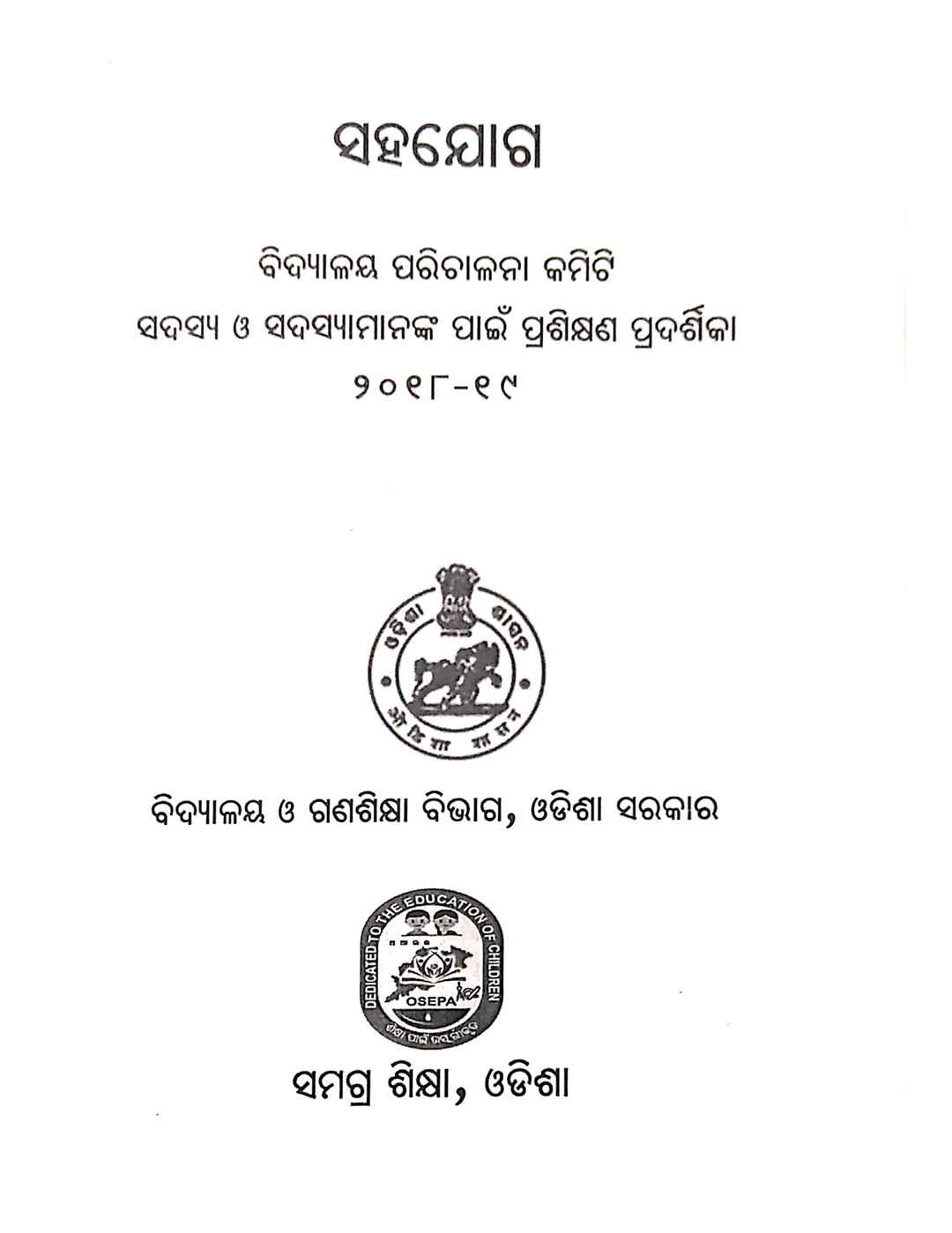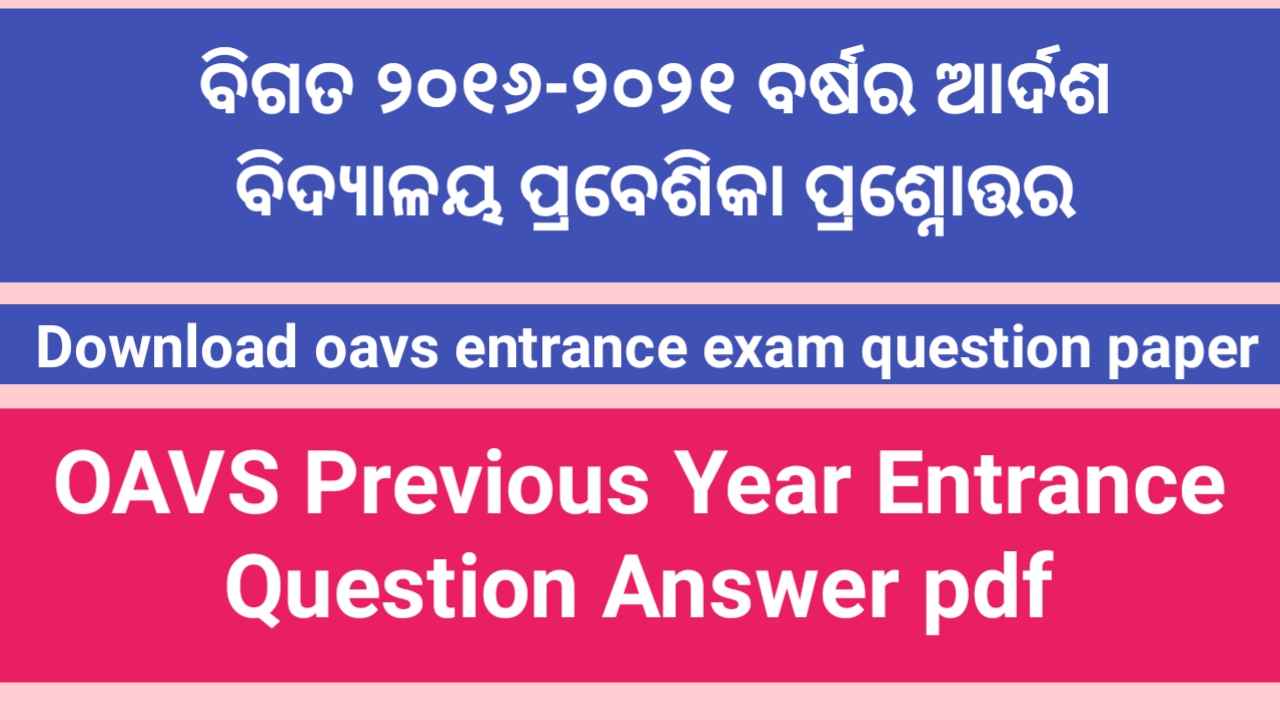SMC Training Module in Odia pdf
SMC Training Module in Odia pdf
SMC Training Module in Odia pdf download here. As per the guidlines of school and mass education odisha has prescribed this SMC Training Module in Odia pdf.
What is smc training ?
In order to fulfil the requirements of the Sarva Shiksha Abhiyan (SSA) within the framework of the Right to Education (RtE) Act 2009, community involvement is essential. Social, geographical, and gender inequalities can all be closed with community involvement in school administration. People must be allowed the flexibility to create the school as they see fit and must understand their roles and duties as guardians, parents, and local government officials. The state has traditionally supported educators in helping students succeed by emphasising the value of community involvement in school development and quality improvement. Due to this ongoing emphasis on active community involvement through various programmes, importance has been accorded smc training module in odiaTraining of Community Members
The current SMC standards have been reviewed in Odisha because practically all of the SMCs have served their three-year terms now and there has been a change in the staffing structure at the block and district levels. The new directive was released by the S & ME Department, Government of Odisha, via Notification No. 16485 dated 30.7.2014. smc training module in odia
Creation of a three-day training programme to increase the capacity of SMC members:
According to the updated instructions on the creation and operation of SMCs, the existing 02-day training module for SMC members' capacity building has been evaluated. The module's most notable characteristics are:
Function of the Standing Committee on Education at the GP/NAC/Municipal Corporation Level.
Convergence with line departments, including the Panchayati Raj Department, the ST & SC Development Department, the Health Department, the W & CD Department, the RD Department, the Labor Department, and the Water & Sanitation Department, among others.
Establishment and operation of PTA
SMC formation and operation
Roles and duties of many stakeholders for effective RTE Act-2009 implementation and child rights
Monitoring and regulating various programmes and plans
Facilities and provisions for the educational growth of children from underprivileged groups
Mechanism for addressing complaints
Community involvement in school development, school development plan creation, etc.
Training for SMC members has taken place at the State, district, block, and cluster levels, respectively, following a review of the SMC training module. These individuals trained six SMC members from each SMC of solely government schools at the cluster level in order to make them aware of their roles, responsibilities, and functions with relation to the following:
Organize an enrollment drive to ensure the enrollment of all unenrolled students and their continued attendance at the school until they have finished their elementary education.
Through persuasion of parents, ensure that children regularly attend school and prevent temporary cessation and dropout of children.
Keep track of teachers' regular attendance.
coverage of academic programmes.
After the test is finished, make sure that students perform exceptionally overall and evaluate the success of the school's work and other extracurricular activities.
Make sure that rewards such midday meals, textbooks and other reading materials, uniforms, etc. are distributed.
enhancement of the school campus's plant life and development of the playground and children's park.
enhancing community involvement in schools and ensuring convergence across several government departments
ensuring the enrollment of out-of-school children and protecting the rights of children to an education under the RTE.
use the OPEPA's Grievance Redressal System and the 18003456722 School Student Helpline.
planning the development of the school (SDP).
managing money and running a bank account.
close the socioeconomic and gender divide.
granting all youngsters access
creating a space for innovation and creative exploration.
Providing educational opportunities for kids from underprivileged communities, such as girls, kids with special needs, kids from ST, SC, and other underprivileged communities, etc.
To prepare Out of School Children (OoSC) admitted to age-appropriate schools, specific training should be organised (both Residential and Non Residential).
Regular meetings of the SMC members are used to monitor the progress of the institution.




Comments
Post a Comment